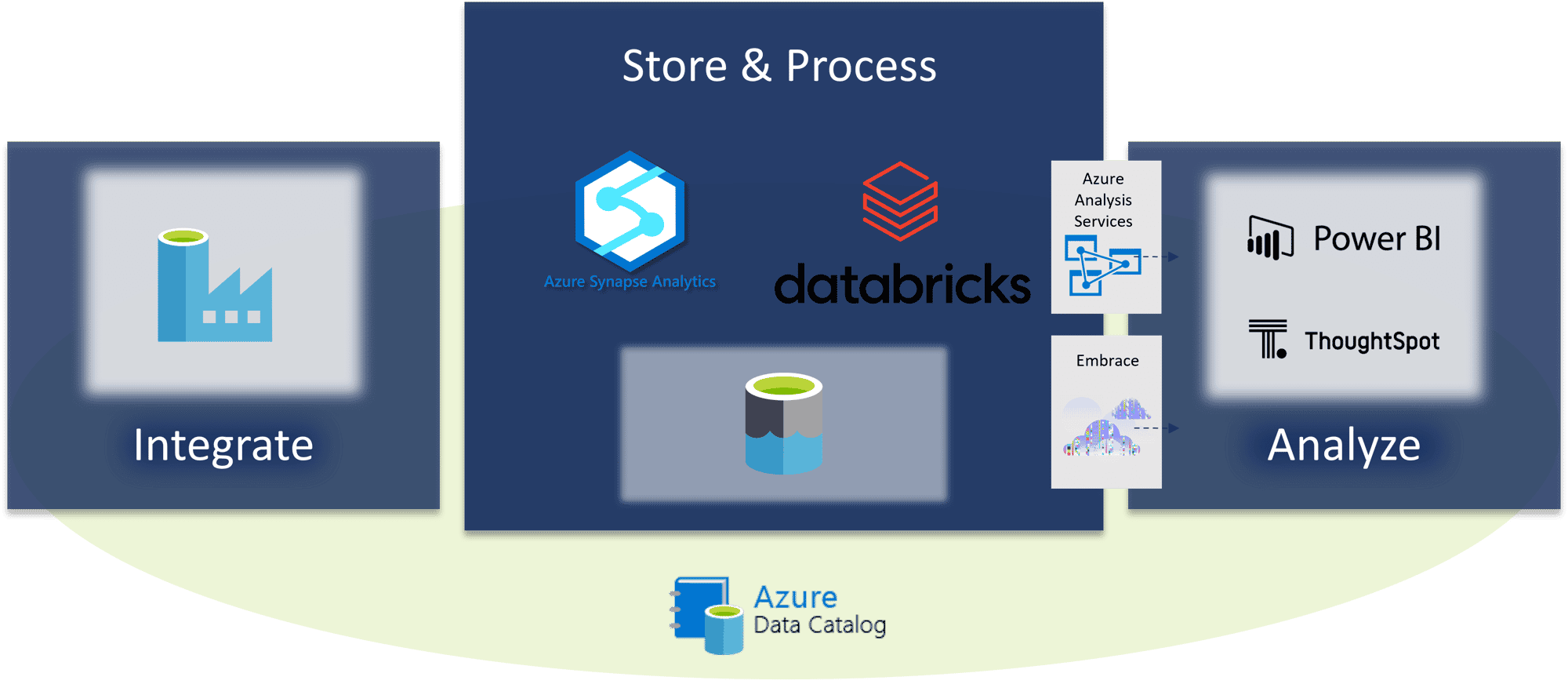
Azure Data Architecture
Azure data architecture offers organizations the opportunity to unify data, analytics, and development while integrating various data sources. By making the switch now, organizations can reduce complexity, decrease infrastructure costs, and benefit from having data warehousing and data science capabilities in one place. This streamlined approach enables better management, cost optimization, and enhanced decision-making.


BI to Insights
Empower your teams with Microsoft Power BI, the tool that revolutionizes self-service analytics for users of all expertise levels and business sectors. Seamlessly integrate and visually represent data from various Microsoft platforms, allowing you to easily share valuable insights across Office, Teams, Excel, and beyond. With the Power Platform, transform data-driven insights into innovative enterprise solutions that not only enhance business productivity but also streamline and automate organizational processes. Microsoft Power BI is your key to unlocking the full potential of your data and driving success in your organization.

Insights to Answers
A pragmatic data governance approach using Azure Data Catalog consists of:
- The Data Asset Registry, making data assets accessible and discoverable by the enterprise.
- The Business Glossary, providing the functions necessary to support Data Owners/Stewards in their regular responsibilities of governing and managing data assets.
With data literacy on the rise, it’s becoming more important to capture valuable business knowledge and make it easily accessible to the broader enterprise.
Data Governance
Insights to Answers
A pragmatic data governance approach using Azure Data Catalog consists of:
- The Data Asset Registry, making data assets accessible and discoverable by the enterprise.
- The Business Glossary, providing the functions necessary to support Data Owners/Stewards in their regular responsibilities of governing and managing data assets.
With data literacy on the rise, it’s becoming more important to capture valuable business knowledge and make it easily accessible to the broader enterprise.
.png?width=700&height=127&name=Blue%20Mantis%20formerly%20known%20as%20SME%20Solutions%20Group%2c%20Inc.%20(GREEN).png)